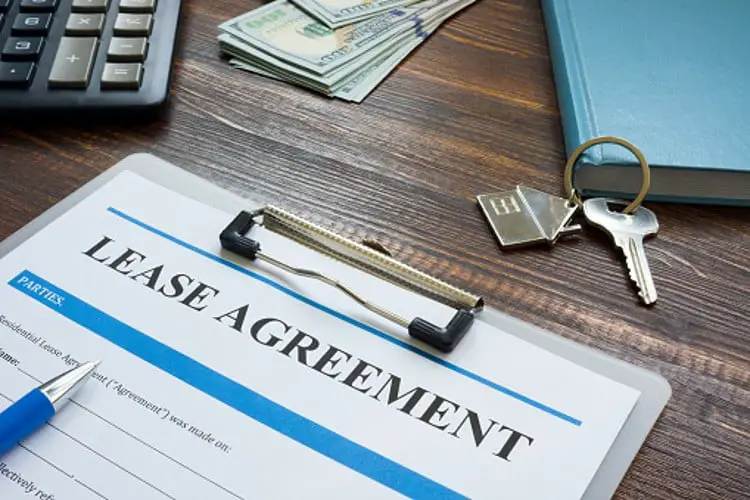It is important to know what to say when negotiating rent. Low-income middle-class families are particularly affected by the pressure of soaring rent costs as they struggle to pay for expensive rent while also providing for other family requirements. A prospective renter should be aware that there is always room for discussion because rent increases are a given in Indian towns. Most landlords follow the conventional wisdom that rent should increase by 10% annually, with a little window for negotiation.
If the tenant receives notice, the landlord is permitted to increase the rent. But whether you’re a first-time tenant or a seasoned one, you should know that a successful negotiation is feasible without producing friction in your relationship with your landlord.
Can rent be negotiated?
Yes. The willingness of each landlord to negotiate rent will vary, but it frequently happens. In order to be able to pay their rent when a tenant is late or breaks their contract, landlords frequently factor risk into their rental prices. If your rental application is exceptionally strong, you may have some sway because landlords appreciate tenants who are trustworthy and financially secure.
Motives for requesting a rent decrease
There are a few circumstances that will lead you to request a rent reduction aside from wishing to lower your cost of living.
1. Monetary difficulties
Cheaper rent could provide you with much-needed relief, regardless of whether your financial difficulties are caused by losing your job owing to the coronavirus outbreak or having unforeseen medical expenses from an accident. Provide the information that the landlord will require to support a lower rent payment. Include details on your future course of action as well. The landlord needs to be aware that you’ll eventually be able to support yourself financially. Stress that despite your responsibility, you were unable to prepare for this circumstance. Mention all the other reasons you are a good renter as well!

2. Rental rates at rival properties are lower
Rent increases are mostly caused by the need to maintain pace with the housing market. Use this to your advantage when negotiating your rent if nearby apartment buildings with equivalent apartments and amenities are offered at a lesser cost. Use the supporting information in your rent reduction letter as leverage to demonstrate that, if necessary, you can move out of your current residence and into a less expensive property.
3. Inadequate facilities
Inform your property management if your present apartment building lacks features that other nearby apartment buildings have, such as an on-site gym or laundry facilities. Another problem is that you can never find a parking spot when you need one. To keep you as a tenant, the apartment manager might think about providing these services or lowering your rent. The landlord will probably be more motivated if the other apartment complex is a serious rival. The community as a whole does not gain from vacant units!
When to request a rent reduction?
You can ask for a rent decrease at any time, but your landlord will be most receptive to your request if you do it when you are renewing your lease because you will have more bargaining power then. In the course of negotiating your rent, you can also bring up other contentious issues like pet costs and the security deposit. It’s difficult to locate quiet, tidy tenants, so there’s a good possibility your landlord wants you to stay in your apartment. When negotiating a lease renewal, refer to our sample rent decrease letter. The landlord is more likely to cut the rent if you have a strong argument.
However, if you’ve experienced a sudden financial setback, as many people have since the coronavirus outbreak, request a rent decrease as quickly as you can. You’ll come off as more dependable and show that you’re trying to improve your condition if you demonstrate that you’re making plans for the upcoming month.
Asking for a temporary decrease in rent is an additional option when negotiating rent. You could want a little rent relief during this time if your work has been put on hold due to quarantine. As you wait to get back on your feet, ask your landlord if they would be prepared to lower your rent for these few months.

What percentage of a reduction should be requested?
Your case will be made or broken by the percentage reduction you want during the rent negotiation. Make sure to request a reasonable discount based on the current rental costs in your area (both in your complex and others in the area).
To support a lower price, a little research into the local rental market is required. Find out how much your neighborhood neighbors are paying for their rent and whether they have had any luck negotiating it. It’s not rude to ask some of your neighbors about their rates to get an idea of what they are paying. In fact, they’ll be glad to hear if they’re paying too much so they can write a letter of rent reduction on their own. An important aspect of the negotiation and probably what will convince your landlord in the end is having a thorough understanding of local rent costs.
Things that can be negotiated
Remember that a good portion of a lease may be negotiable before you sign it (of course, depending on the landlord’s circumstances and your own leverage). Rent and other crucial facets of the lease can be negotiated more easily if you are a more ideal tenant. Curious about the lease’s negotiable provisions? The following seven items are up for negotiation with your landlord.
1. The cost of rent
Keep in mind that rent costs are negotiated first and foremost. It doesn’t harm to attempt and negotiate a lesser rent, even if a landlord is certain about their asking price. Of course, if the landlord is having difficulties finding a renter, if the market indicates that the landlord’s asking rent is excessive to begin with, and if you’re a dependable tenant with a strong credit history, negotiating a lower price is considerably easier (and more likely to succeed). Look at the local competition and available rentals before requesting a reduced rental fee. Research the comparable properties and let your landlord know why you believe your offer is reasonable.

2. The term of your lease
So the landlord insists on a lease term of at least a year? It’s possible to negotiate this, believe it or not. A 3-month, 6-month, or 9-month lease at a higher price may be acceptable to your landlord. Ask for a month-to-month option instead, which would make your lease month-to-month after 12 months, if the landlord won’t budge on the length of the lease. Asking the landlord whether you can locate a new renter to sublet the flat to whenever you’re ready to move out and take over the lease is another possibility. The landlord might not worry if you break the lease early as long as they have the regular payments in their possession. It may be better to look at more flexible options if the landlord is unwilling to compromise on the length of your lease and 12 months simply isn’t an option for you.
3. Parking
So your landlord won’t agree to a lower price or a shorter lease? Ask the landlord if they would be willing to provide you with free parking if those conditions are unavoidable. Particularly when there are few parking spaces available in the building, many landlords require tenants to pay for their parking. The landlord might be more than happy to assist you with the parking dilemma if you’re actually a quality tenant.
4. Maintaining the yard
Many landlords stipulate in the lease that the tenant must arrange and pay for inexpensive repairs (think: installing air filters, replacing light bulbs and changing smoke detector batteries). The majority of landlords take care of pricey maintenance issues including damaged HVAC systems, plumbing, and electrical issues. The tenant may, however, be required to maintain the yard and lawn according to the contract. This is not unusual, but it is certainly negotiable. The majority of renters don’t mind cutting the grass once in a while, but if the yard is big (and has a lot of vegetation), this could be a problem. No tenant wants to invest hundreds of dollars (or a lot of their own time) in maintaining the landscaping, after all.
5. Pest prevention
In relation to tenant obligations, your landlord might specify in the lease that the tenant is in charge of routine pest extermination and control. Although paying for pest control services on a monthly basis might not seem like a huge thing, the cost can build up over time. Additionally, if there is a pest issue with the house already, addressing it could be very expensive (think: tenting a home for termites, which can cost several thousand dollars). Having difficulties negotiating even the smallest details? As long as you organise and manage the routine maintenance, ask your landlord whether they are okay with paying for the pest treatment.

6. Cosmetic alterations
The landlord might be more open to allowing you to make aesthetic improvements to the rental if you’ve been a model tenant with a good rental history. Painting walls, adding window coverings, hanging wall art, and adding light fixtures are typical aesthetic alterations that tenants make to rental properties. Most landlords will permit these modifications as long as the tenant leaves the home in the same condition as when they arrived. The landlord might be more amenable to a tenant’s cosmetic improvements if they aren’t ready to bargain over the rent or the terms of the lease.
7. Cleaning
Most landlords demand that the tenant be in charge of routine maintenance and cleaning of the property. Ask the landlord to foot the bill for routine thorough cleanings of the carpets and interior living areas if they aren’t open to negotiating other terms or a price reduction. Consider requesting the landlord to arrange and pay for an initial deep cleaning before you move in if the landlord won’t agree to this.
9 ways to negotiate rent
1. Be courteous.
Some believe that being aggressive during negotiations is appropriate. But keep in mind that being impolite is not the same as being self-assured that you are a desirable renter. This is the start of a long-term relationship with your landlord, hopefully. Be courteous and obliging. As a tenant, you have the right to haggle over rent, but the best way to close the deal is with tact and diplomacy.
2. Describe your advantages as a tenant.
A landlord will only reduce your rent if you are someone they really want to live in their rental. Tell them why they ought to: It will save them time and money to find new tenants if you emphasise your good history of timely rent payments and apartment maintenance. Also, let them know if you plan to rent the apartment for more than one year. Provide them with the contact information of previous tenants so they can attest to how excellent of a tenant you are.

3. Inform them of your options.
You likely located a few properties you would be receptive to renting during your apartment hunt. Make sure it’s clear—in a respectful way—during your conversation about negotiating rent that their rental is one of several you’re considering. The landlord won’t feel the need to reduce the rate if they think they are your only choice.
4. Choose the best offer.
What price should you propose while negotiating a rent? It must be so low as to offend the landlord or give them the impression that you lack knowledge. However, it need to be a touch less expensive than your ideal rental cost to allow you some wiggle room. Select the ideal starting offer amount after doing some research on nearby houses. Of course, your budget is also important. Start by reading our guide on determining how much rent you can pay.
5. Utilize the features of other properties.
Your diplomacy must truly shine in this situation. Other locations in the neighbourhood have more to offer for the same or lower price, which is a strong justification for cutting rent. You may say, for instance, that although you’d really want to live in this apartment because it’s so close to your place of employment, another building across the street has a pool and a gym membership available for the same price. This may enable the landlord to understand how lowering the rent will influence your choice.
6. Present the landlord with something worthwhile.
Landlords frequently claim that there isn’t any place in their budget for rent negotiations. However, you still have options: There are numerous monthly expenses that landlords may need assistance with. For instance, you could mow the yard. You may offer to refinish the rental’s worn-out wood floors if you’re handy. Uncertain about how to assist? Ask. The landlord might have been planning to create a website. Your time might save you money on your rent if you have the necessary skills.
7. Be willing to modify your lease.
Is there anything the landlord would like to change about the lease? They might be more receptive to negotiating rent if you’re willing to make concessions on those. Perhaps you can agree to a longer lease term or change the expiration date to coincide with a period when the landlord will probably have an easier time locating a new renter.

8. Consider non-monetary accommodations.
Perhaps the landlord genuinely has no want to budge on price. Okay, where else could you add value to your agreement without charging customers more? Perhaps they could issue you an additional parking pass if you anticipate having many visitors. Ask whether you can sublet the apartment if you think you’ll be gone for the summer.
9. Check back later.
Rent negotiations don’t have to finish on the day you sign your lease. Open a fresh line of communication with your landlord to discuss rent negotiations a few months before your lease expires if you’ve been a model tenant. Finding and getting ready for new tenants is expensive for landlords. You’re in an excellent position to bargain rent if you’re a dependable, trustworthy tenant and breaking your lease saves the landlord money.
Read this article for more useful insights: How to negotiate rent?
Final words
Although it can be quite thrilling, looking for the ideal apartment can be expensive. Fortunately, it’s not necessary. You might be able to lease a unit that satisfies your wants (and some of your bank account’s needs) with a little bit of negotiating.
There are definitely significant advantages to having a smaller monthly payment, even if you’ve never thought of haggling over your rent. With the money you free up, you may start building your savings. Additionally, winning a bargain may provide you the freedom to spend more money on your priorities.





